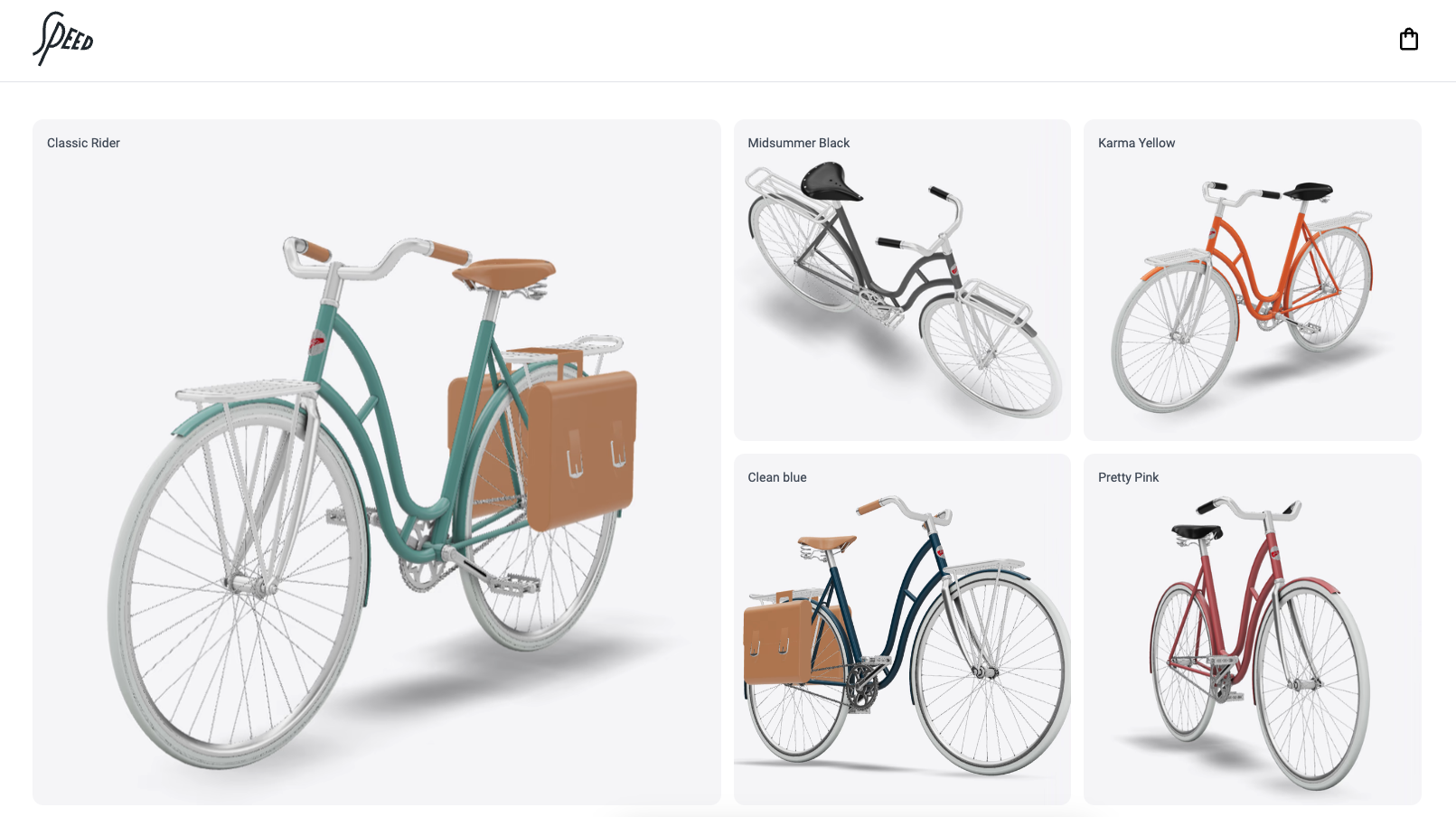Product Configurator Boilerplate (Next.js)

What This Guide Covers
- Setting up your project
- Instructions for running the project
- Accessing the development site
- The folder structure of the boilerplate
- Setting up the 3D model
- Livestream video
Getting Started
To create a new project, the quickest is to use the Crystallize CLI. Once you have the CLI installed; type in the following command:
crystallize boilerplate install <your-project-folder-name>crystallize boilerplate install <your-project-folder-name>Then follow the wizard and select the Next.js Product Configurator option. This will clone the project, initialize a tenant with shapes demo data and ignite the Discovery API.
Alternatively you can clone clone the repository.
Running the Project
Before running the project, make sure to provide your Crystallize credentials in the .env file, which will later be used for the authentication of the Shop API.
CRYSTALLIZE_ACCESS_TOKEN_ID=<your access token id>
CRYSTALLIZE_ACCESS_TOKEN_SECRET=<your access token secret>CRYSTALLIZE_ACCESS_TOKEN_ID=<your access token id>
CRYSTALLIZE_ACCESS_TOKEN_SECRET=<your access token secret>Install packages and run the project:
pnpm install & pnpm devpnpm install & pnpm devAccessing the Development Site
Once the development server is running, you will be able to browse to http://localhost:3000.

Directory Structure
The app is contained within the src folder.
src/app
Since the project is using the NextJS app router, the app folder is the place were we have our routes: home and product. Each route may contain a `components` folder to store all components used by the route.
src/components
The components folder under the src folder contains all reusable components that are shared among all routes, like the Cart in this case.
src/context
The context folder has the shared context for the app. For now, this is only the Cart context so we can access the cart from any place in the app.
src/actions
The actions folder has all NextJS server actions used in the app. They serve as an endpoint between the UI and the Core/Crystallize.
src/middleware.ts
The middleware is the one place where we authenticate against the Shop API by providing our Crystallize credentials. In return, we receive a JWT token which we can use later to make requests to the Shop API.
src/core
This is where all the framework and server-side specifics are organized.
src/use-cases
This is all the “Use Cases.” Everything that is business related, you can see that as the “Domain” folder. There is no connection to the UI or to the Framework in this folder. You will mainly find functions that do meaningful actions like `getProduct`, `createOrder`, etc.
Model Viewer
The ModelView component located at src/app/product/components/model-view renders the 3D model. You will need to provide a glb file as a source to the model-view .
